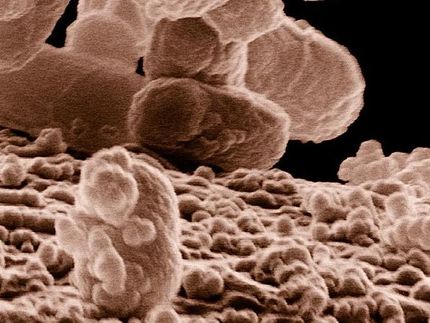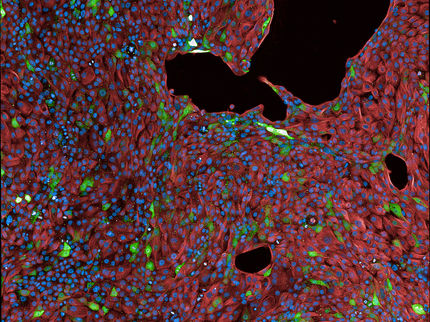Drug discovery potential of natural microbial genomes
Advanced genetic technique yields novel antibiotic from ocean bacteria
Scientists at the University of California, San Diego have developed a new genetic platform that allows efficient production of naturally occurring molecules, and have used it to produce a novel antibiotic compound. Their study, published in PNAS, may open new avenues for natural product discoveries and drug development.
According to lead investigator Bradley S. Moore, PhD, of the Scripps Institution of Oceanography and Skaggs School of Pharmacy and Pharmaceutical Sciences at UC San Diego, the findings demonstrate a "plug and play" technique to trigger previously unknown biosynthetic pathways and identify natural product drug candidates.
"In my opinion, the new synthetic biology technology we developed – which resulted in the discovery of a new antibiotic from a marine bacterium – is just the tip of the iceberg in terms of our ability to modernize the natural product drug discovery platform," Moore said.
The ocean, covering 70 percent of the earth's surface, is a rich source of new microbial diversity for the discovery of new natural products effective as drugs for treating infections, cancer and other important medical conditions. Most natural antibiotics are complex molecules that are assembled by a special group of enzymes genetically encoded in the microbe's chromosome.
But it often proves difficult to grow the newly discovered ocean bacteria in the laboratory, or to get them to produce their full repertoire of natural products.
The UC San Diego scientists harvested a set of genes predicted to encode a natural product from ocean bacteria, then used the synthetic biology technology to identify and test a totally new antibiotic – taromycin A – found to be effective in fighting drug-resistant MRSA.
"Antibiotic resistance is critical challenge to the public health. Most antibiotics, such as penicillin, used in human medicine are natural molecules originally isolated from microbes in the soil or rainforest – part of the chemical warfare that microbes deploy to out-compete one another and secure their niche in the environment," said co-investigator Victor Nizet, MD, professor of pediatrics and pharmacy at UC San Diego.
Such microbes have the genetic capacity to biosynthesize a wide range of specialized compounds. Although next-generation sequencing technologies can potentially exploit this capacity as an approach to natural drug discovery, researchers currently lack procedures to efficiently link genes with specific molecules. To help bridge this gap, the UC San Diego researchers developed a genetic platform based on transformation-associated recombination (TAR) cloning, which efficiently produces natural product molecules from uncharacterized gene collections.
The researchers applied the platform to yeast, targeting the taromycin gene cluster because of its high degree of similarity to the biosynthesis pathway of daptomycin, a clinically approved antibiotic used to treat infections caused by multi-resistant bacteria. "The technique has the potential to unlock the drug discovery potential of countless new and mysterious microbes," Nizet concluded.
Most read news
Topics
Organizations

Get the analytics and lab tech industry in your inbox
By submitting this form you agree that LUMITOS AG will send you the newsletter(s) selected above by email. Your data will not be passed on to third parties. Your data will be stored and processed in accordance with our data protection regulations. LUMITOS may contact you by email for the purpose of advertising or market and opinion surveys. You can revoke your consent at any time without giving reasons to LUMITOS AG, Ernst-Augustin-Str. 2, 12489 Berlin, Germany or by e-mail at revoke@lumitos.com with effect for the future. In addition, each email contains a link to unsubscribe from the corresponding newsletter.
























































